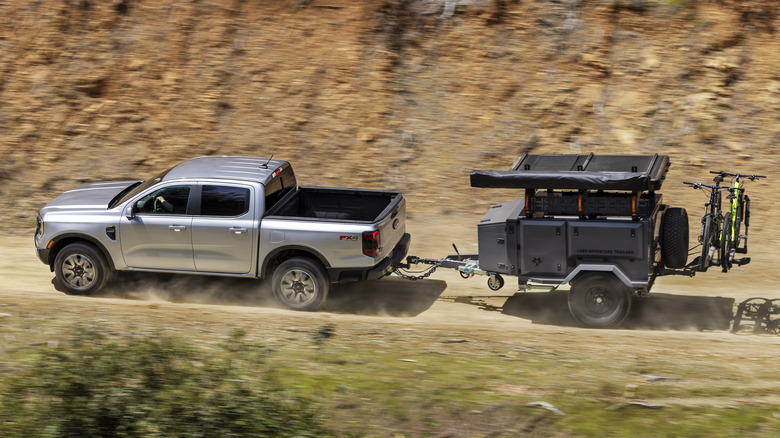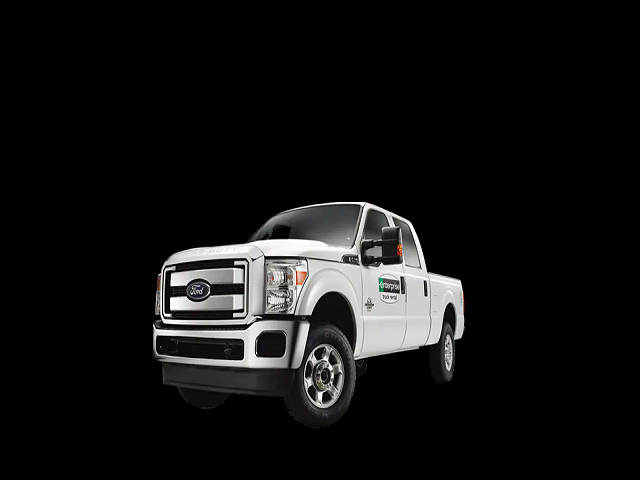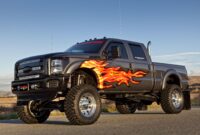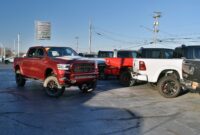Rental Pickup Trucks for Towing: Your Comprehensive Guide cars.truckstrend.com
The need to tow can arise unexpectedly or for specific, temporary projects. Perhaps you’re moving a boat for the season, hauling a new piece of furniture, transporting a utility trailer full of yard waste, or embarking on a cross-country RV adventure. For many, owning a dedicated pickup truck capable of handling significant towing tasks isn’t practical or financially viable. This is where rental pickup trucks for towing emerge as an invaluable solution. They offer the power, capability, and flexibility required for your hauling needs without the commitment and expense of ownership.
This comprehensive guide will delve into everything you need to know about utilizing rental pickup trucks for towing, from understanding capacities and choosing the right vehicle to navigating the rental process and ensuring safe operations. Whether you’re a seasoned hauler or new to towing, this article provides the insights to make your next towing project a success.
Rental Pickup Trucks for Towing: Your Comprehensive Guide
Why Rent a Pickup Truck for Towing? Benefits & Use Cases
Opting for rental pickup trucks for towing provides a host of advantages, making it an increasingly popular choice for individuals and businesses alike.
- Cost-Effectiveness: Owning a heavy-duty truck means significant upfront costs, insurance, maintenance, fuel, and depreciation. Renting eliminates these ongoing expenses, allowing you to pay only for the time you need the vehicle.
- Flexibility for Occasional Needs: Most people don’t tow frequently. Rental trucks are perfect for those once-a-year moves, a weekend RV trip, transporting a new ATV, or moving materials for a home renovation project.
- Access to Diverse Vehicle Types: Rental fleets often boast a wide range of trucks, from light-duty half-tons to heavy-duty three-quarter or one-ton models. This allows you to select a truck perfectly matched to the specific weight and type of trailer you need to tow, without being limited by a single personal vehicle.
- No Maintenance Worries: Rental companies are responsible for the upkeep and servicing of their fleet. You pick up a well-maintained vehicle, use it, and return it, free from concerns about oil changes, tire rotations, or unexpected repairs.
- Trial Before Buying: If you’re considering purchasing a truck for towing, renting different models can be an excellent way to test drive various brands and configurations to see what best fits your long-term needs.
- Emergency or Backup Solution: If your personal towing vehicle is in the shop, or you unexpectedly need to haul something beyond its capacity, a rental truck offers a quick and reliable alternative.

Common use cases for rental pickup trucks for towing include:
- Moving household goods with a utility or enclosed trailer.
- Transporting recreational vehicles like travel trailers, campers, or boats.
- Hauling landscaping materials, construction debris, or heavy equipment.
- Towing vehicles on a car hauler.


Choosing the Right Rental Truck for Your Towing Needs
Selecting the correct rental pickup truck for towing is the most critical step to ensure safety and efficiency. This involves understanding towing capacities and the features that matter.
Understanding Towing Capacity & Weights
Never guess your towing requirements. Overloading a truck is dangerous and illegal. Key terms to understand include:
- Gross Vehicle Weight Rating (GVWR): The maximum loaded weight of the truck itself (including passengers, cargo, and tongue weight of the trailer).
- Gross Trailer Weight (GTW): The total weight of the trailer and its cargo.
- Tongue Weight (TW): The downward force exerted by the trailer’s tongue on the hitch ball of the tow vehicle. This is typically 10-15% of the GTW for conventional trailers.
- Gross Combined Weight Rating (GCWR): The maximum permissible loaded weight of the tow vehicle and its attached trailer. This is the most crucial number for towing.
- Payload Capacity: The maximum weight the truck can carry in its cab and bed, including passengers, cargo, and the trailer’s tongue weight.
Always ensure the trailer’s GTW is well within the rental truck’s maximum towing capacity, and that the tongue weight does not exceed the truck’s payload capacity or hitch rating. It’s always better to have more capacity than you need.
Truck Sizes and Classes
Rental fleets typically offer a range of sizes:
- Light-Duty (Half-Ton): Examples include Ford F-150, Ram 1500, Chevrolet Silverado 1500. These are suitable for smaller utility trailers, jet skis, lighter boats, or compact travel trailers. Their towing capacities typically range from 5,000 to 13,000+ pounds depending on configuration.
- Heavy-Duty (Three-Quarter & One-Ton): Examples include Ford F-250/F-350, Ram 2500/3500, Chevrolet Silverado 2500/3500. These trucks are designed for serious towing, capable of handling large RVs, car haulers, heavier equipment, and commercial loads. Their capacities can range from 15,000 to over 35,000 pounds.
Powertrain and Drivetrain
- Engine Type: While V6 engines can tow light loads, V8 gasoline engines offer more power for moderate to heavy towing. For the heaviest loads, especially over long distances or challenging terrain, a diesel engine (common in heavy-duty trucks) provides superior torque and fuel efficiency.
- Drivetrain: 2WD is generally fine for paved roads. However, if you anticipate uneven terrain, slippery boat ramps, or adverse weather, a 4WD (four-wheel drive) option will provide better traction and control.
Essential Towing Features
When choosing rental pickup trucks for towing, look for these features:
- Integrated Trailer Brake Controller (ITBC): Absolutely essential for trailers with electric brakes. This allows you to control the trailer’s brakes directly from the truck’s cabin. Many rental trucks capable of significant towing will have this.
- Tow/Haul Mode: A button that adjusts transmission shift points, engine braking, and throttle response to optimize performance and reduce strain on the powertrain while towing.
- Trailer Sway Control: An electronic stability system that helps mitigate trailer sway, improving safety.
- Extendable Tow Mirrors: Crucial for seeing around wide trailers, improving visibility and safety.
- Heavy-Duty Hitch Receiver: Ensure the hitch class (e.g., Class IV, Class V) matches or exceeds your trailer’s GTW.
- 7-Pin Trailer Wiring Connector: Most larger trailers use a 7-pin connector for lights, brakes, and auxiliary power. Confirm the rental truck has this, or an adapter.
- Gooseneck/Fifth-Wheel Prep: If you’re towing a fifth-wheel or gooseneck trailer, you’ll need a truck specifically equipped with the proper bed-mounted hitch receiver. These are less common in standard rental fleets and often require specialized rentals.
Where to Rent a Pickup Truck for Towing
Several reputable sources offer rental pickup trucks for towing, each with its own specialties:
- Major Rental Agencies (General Purpose):
- Enterprise Rent-A-Car: Offers a good selection of light-duty and some three-quarter ton trucks. Known for customer service.
- Budget Truck Rental: Primarily focuses on moving trucks, but some locations offer pickup trucks suitable for towing.
- Penske Truck Rental: Similar to Budget, mainly moving trucks, but some pickup options exist.
- Specialized Towing/Moving Companies:
- U-Haul: While famous for moving vans, U-Haul offers pickup trucks (often older models) specifically for towing their trailers. They are very experienced with towing needs and provide necessary equipment.
- Ryder: Offers a range of commercial trucks, including heavy-duty pickups, often for longer-term commercial rentals but sometimes daily.
- Local Rental Companies & Dealerships: Smaller, independent rental companies or even some auto dealerships might have trucks available for rent. These can sometimes offer more specialized options or competitive local rates.
- Peer-to-Peer Rental Platforms (e.g., Turo): You can rent trucks directly from owners. While offering unique vehicle choices, exercise caution regarding insurance coverage for towing and ensure the owner is comfortable with the intended use. Always verify the truck’s actual towing capabilities and maintenance records.
When booking, clearly state that you intend to use the rental pickup truck for towing and specify the type and weight of the trailer. This ensures they provide a truck with the necessary hitch, wiring, and capacity.
The Rental Process: What You Need to Know
Navigating the rental process for rental pickup trucks for towing is straightforward, but attention to detail is key.
- Booking: Book well in advance, especially for peak seasons (holidays, moving season). Compare prices from multiple agencies. Inquire about daily, weekly, and mileage rates.
- Requirements:
- Valid Driver’s License: Standard Class D license is usually sufficient for non-commercial towing within typical weight limits. For very heavy loads or commercial purposes, a CDL might be required.
- Age Restrictions: Most companies require drivers to be 21 or older, with some charging a "young driver" surcharge for those under 25.
- Credit Card: For payment and security deposit.
- Insurance: This is critical.
- Personal Auto Policy: Check if your personal auto insurance covers damage to a rental vehicle and liability while towing. Many policies extend coverage, but confirm limitations, especially for larger trucks or trailers.
- Credit Card Coverage: Some credit cards offer secondary rental car insurance, but this typically excludes trucks and towing. Verify with your card issuer.
- Rental Company Options: Rental agencies offer Collision Damage Waiver (CDW) or Loss Damage Waiver (LDW) which covers damage to the rental truck, and supplemental liability insurance. It’s highly recommended to consider these, especially if your personal policy has gaps for towing.
- Vehicle Inspection: Before driving off, thoroughly inspect the truck for any existing damage (scratches, dents, cracks) and ensure it’s documented by the rental agent. Take photos or videos. Do the same upon return to avoid disputed charges.
- Fuel Policy: Understand whether you need to return the truck with a full tank or if they charge for refueling.
- Mileage Limits: Some rentals have unlimited mileage, while others have daily limits with per-mile charges thereafter. Factor this into your cost calculation, especially for long trips.
- Towing Accessories: Confirm the rental includes the correct hitch receiver, hitch ball, and wiring harness for your trailer. If not, inquire about renting them or bringing your own.
Safe Towing Practices with a Rental Truck
Safety is paramount when using rental pickup trucks for towing. A few simple rules can prevent accidents and ensure a smooth journey.
- Pre-Trip Inspection:
- Hitch Connection: Ensure the hitch ball is properly seated in the coupler, the coupler latch is secured, and the safety pin is in place.
- Safety Chains: Cross the chains under the trailer tongue and attach them to the truck’s hitch receiver, allowing enough slack for turns but not so much they drag.
- Wiring: Connect the trailer’s electrical plug securely. Test all lights (running, brake, turn signals) and trailer brakes.
- Tires: Check tire pressure on both the truck and trailer, including the spare. Inspect for wear or damage.
- Load Distribution: Ensure the trailer is loaded correctly, with about 60% of the cargo weight in the front half of the trailer to maintain proper tongue weight and prevent sway.
- Driving Techniques:
- Reduce Speed: Towing significantly increases stopping distance. Drive slower than usual, especially in adverse weather or on winding roads.
- Increase Following Distance: Allow much more space between your truck and the vehicle ahead.
- Wider Turns: Account for the trailer’s length and swing. Make wider turns to avoid hitting curbs or other obstacles.
- Use Tow/Haul Mode: This optimizes transmission performance for towing.
- Anticipate: Look far ahead to anticipate stops, turns, and lane changes.
- Braking: Use the trailer brake controller for smooth, controlled stops. Avoid sudden braking.
- Hills: Downshift on descents to use engine braking and prevent brake fade.
- Mirrors: Adjust the truck’s mirrors to see clearly along both sides of the trailer. If necessary, use extendable towing mirrors.
- Backing Up: This is often the trickiest part. Place your hand at the bottom of the steering wheel. Moving your hand left makes the trailer go left, and vice-versa. Make small corrections.
- Breaks: Take frequent breaks to rest and re-inspect your setup.
Potential Challenges and Solutions
While rental pickup trucks for towing offer great convenience, be aware of potential challenges:
- Availability: Popular trucks, especially heavy-duty models, can be booked far in advance.
- Solution: Book early, especially during peak seasons. Be flexible with pick-up/drop-off times or locations.
- Hidden Costs: Mileage fees, refueling charges, late return penalties, or cleaning fees can add up.
- Solution: Read the rental agreement thoroughly. Clarify all potential fees upfront.
- Mechanical Issues: While rare, a rental truck can experience a breakdown.
- Solution: Most reputable agencies offer 24/7 roadside assistance. Know the emergency contact number before you leave.
- Insurance Gaps: Your personal insurance might not fully cover a rental truck, especially for towing, or the trailer itself.
- Solution: Call your insurance provider to confirm coverage. Consider purchasing the rental company’s supplementary insurance if needed.
- Matching Truck to Trailer: Underestimating the required towing capacity is a common and dangerous mistake.
- Solution: Know the exact Gross Trailer Weight (GTW) of your loaded trailer. Err on the side of overcapacity for safety and performance.
Rental Pickup Trucks for Towing: Estimated Price Table
Please note: These are estimated prices and can vary significantly based on location, rental agency, truck availability, season, duration of rental, and specific promotions. Always get a direct quote.
| Rental Agency | Truck Type (Example) | Daily Rate (Approx.) | Weekly Rate (Approx.) | Mileage Policy | Additional Fees (Common) | Notes |
|---|---|---|---|---|---|---|
| U-Haul | Light-Duty (F-150/Ram 1500) | $29.95 – $59.95 | N/A (Daily focus) | $0.59 – $0.99/mile | Hitch rental, Environmental fee, Damage Protection (optional) | Best for local, short-term towing; often older models. |
| Enterprise | Light-Duty (F-150/Silverado 1500) | $90 – $150 | $400 – $700 | Unlimited | Insurance (optional), Fuel, Young Driver Fee | Newer fleet, wider selection of light-duty. |
| Enterprise | Heavy-Duty (F-250/350, 2500/3500) | $150 – $250 | $700 – $1200 | Unlimited | Insurance (optional), Fuel, Young Driver Fee | Availability varies greatly by location. |
| Budget | Light-Duty (F-150/Ram 1500) | $70 – $120 | $350 – $600 | Unlimited (often) | Insurance (optional), Fuel, Roadside Assistance (optional) | Similar to Enterprise, may have fewer heavy-duty options. |
| Penske | Medium/Heavy-Duty (F-250, F-350 equivalent) | $120 – $200 | $500 – $900 | Varies (often per mile) | Insurance (optional), Fuel, Tolls | More focused on commercial/larger trucks, less common for personal use. |
Frequently Asked Questions (FAQ) about Rental Pickup Trucks for Towing
Q1: Do rental pickup trucks come with a hitch and wiring?
A1: Most rental pickup trucks for towing from major agencies will come with a standard hitch receiver (typically a 2-inch receiver for light-duty, 2.5-inch for heavy-duty) and a 4-pin or 7-pin electrical connector. However, you often need to bring your own hitch ball and ball mount, or rent them separately. Always confirm this when booking.
Q2: Can I tow a fifth-wheel or gooseneck trailer with a rental truck?
A2: Generally, no. Standard rental pickup trucks are usually equipped with conventional bumper-pull hitches. Fifth-wheel and gooseneck hitches require specialized equipment installed in the truck bed, which is rarely available in typical rental fleets. You would need to seek out a highly specialized commercial rental agency or a peer-to-peer rental that explicitly offers this setup.
Q3: What kind of driver’s license do I need to tow with a rental truck?
A3: For most non-commercial towing (e.g., RVs, utility trailers, boats), a standard Class D (or equivalent) driver’s license is sufficient, provided the combined weight of the truck and trailer does not exceed your state’s non-commercial weight limits (often around 26,000 lbs GCWR). For heavier commercial loads or specific trailer types, a Commercial Driver’s License (CDL) might be required. Always check your state’s Department of Motor Vehicles (DMV) regulations.
Q4: What if I break down while towing a trailer with a rental truck?
A4: Reputable rental companies offer 24/7 roadside assistance. In case of a breakdown, contact the rental agency immediately using the number provided in your rental agreement. They will guide you on the next steps, which typically involve sending a mechanic or arranging a tow.
Q5: Is insurance for towing covered by my personal auto policy?
A5: It depends on your policy. Many personal auto insurance policies extend liability and collision coverage to rental vehicles, but there can be limitations, especially concerning larger trucks or the trailer itself. It’s crucial to call your insurance provider before you rent to confirm your coverage for the rental truck, the act of towing, and any damage to the trailer you are towing. Consider the rental company’s insurance options if your personal policy has gaps.
Conclusion
Rental pickup trucks for towing provide an indispensable and flexible solution for a wide array of hauling needs. By understanding your specific towing requirements, meticulously selecting the right vehicle, and adhering to safe towing practices, you can leverage these rentals to accomplish tasks that would otherwise be impractical or overly expensive. From weekend adventures to critical projects, the power and versatility of a rental truck empower you to move what you need, when you need it, all without the burden of ownership. Plan wisely, tow safely, and make the most of this convenient resource.
![]()



